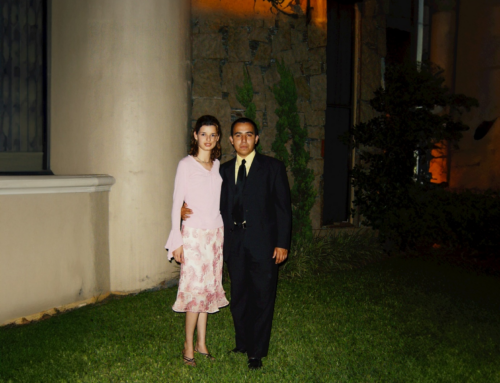Nothing is totally risk-free because uncertainty is just a part of life in reality. Therefore, dating and relationships also have some risks that you need to manage well if you are looking to build a sustainable relationship. When it comes to how to manage contingency properly in international dating, please allow me to use a business analogy below.
-
What kind of risks are involved in dating and relationships?
Frankly, when you do not take a risk, that’s the biggest risk of all because without participating in the dating scene, you won’t get the results you want and deserve in the first place.
In terms of international dating, the biggest risk is your time. That means when you spend two years chatting with someone online (texting) without meeting that individual in person, you might waste 2 years of your life!
Therefore, you should totally find a way to meet that special woman as soon as possible, even if it means having a video/audio chat online. You would be well-advised to meet her in person soon so that you can find out whether she is the right woman or not.
In the Australian tourism and hospitality industry, there are many risks this year. The main risk caused by recent crises is financial risk. The second risk is a potentially long period of time when the struggle keeps happening. Also, customers and staff members in hotels may have psychological fear after the COVID-19 outbreak. Organizations in the tourism and hospitality industries in Australia should make full use of the support offered by the government. Further, businesses have two directions: they can use the government support to maintain their current business so that after the crisis is gone, organizations can continue to do business; alternatively, some businesses may consider changing its main offerings, e.g. instead of running mainstream restaurants, certain organizations can sell take-away food.
-
It’s all about how you manage risk and contingency in international dating.
First and most importantly, please do not send anyone money online, even if you like that person on a dating site.
Secondly, you are supposed to evaluate potential risk and contingency before you start a romantic relationship with a woman.
According to Tuckey (2006), strategic crisis management is a part of a strategic planning of a destination or an organization. It stresses the significance of a comprehensive management of crises from pre-crisis, crisis and post-crisis stages. Strategic crisis management includes ongoing monitoring, feedback as well as review of crisis management methods which are used by an organization.
In order to ensure sustainable tourism and hospitality industry, strategic crisis management must be utilized because tourism and hospitality organizations should shift their focus from just responding or reacting to emergency situations as well as crises to proactively analyzing and evaluating risks when they create relevant business strategies.
Being proactive means an organization needs to understand crisis anticipation. This is not about looking for problems before they arise; it’s actually about ongoing scanning and assessment of potential risks (AKA horizon scanning), which may include data collection and evaluation, internal and external environment and using indicators as well as information sources. In this way, vulnerability of organizations can be effectively reduced through preventive measures.
Actually, in tourism and hospitality industries, crisis anticipation is especially important and valid due to the perishable and intangible nature of the industry’s offerings as well as the amount of vulnerability to its external environment.
In terms of generic corporate strategy, an organization would be well-advised to take some strategic actions that may minimize the risk and possible damage of a crisis, e.g. diversification, risk transfer, cooperation, insurance and self-bearing.
When it comes to tourism and hospitality industries, diversification means a distribution of activities and offerings on several different profit sources, thereby aiming to compensate for the loss of one source. That is because certain areas of the organization or customer base might be especially susceptible to negative incidents and risks. This is a good way to alleviate financial stress which has been identified as a main risk caused by bushfires and COVID-19. For instance, if a hotel can offer accommodation, food and entertainment services, it can diversify its offerings. More exactly, when the tourism industry is severely affected by bushfires and COVID-19, a hotel may not have enough customers from overseas or other states. However, this hotel can still sell take-away food because it has several restaurants. Meanwhile, if this hotel also has entertainment services such as live music and movies, it can cater for the needs of more local customers, e.g. having a certain number of customers in its movie theatre at a time; playing live music on the rooftop or outside of the hotel. In this way, switching from international to domestic or local market is a great crisis prevention strategy – these profit sources should be established before a real crisis happens.
Since it may take Australia a longer period of time to recover from COVID-19, tourism and hospitality industries must take strategic actions accordingly. Better preparedness and resilience are both paramount. To be more exact, it is very important to use cooperation as a strategic approach, as cooperation produces the benefits of shouldering risk among several parties without the disadvantage of damaging the competitive edge of any party. Actually, the right cooperation can effectively lower the risk for all members. For example, if hotels and restaurants can cooperate with each other, the current risk could be managed reasonably well – because the current restrictions are gradually being lifted, hotels and restaurants are slowly opening their doors now. In many cases, hotels and restaurants share the same target market; thus, it would be ideal if hotels and restaurants can cooperate and promote each other’s brands, thereby becoming more resilient and lowering the risk together. Besides, having the right insurance is also a way to transfer the risk to an external organization, which means a hotel can have more time to overcome the struggle caused by COVID-19.
“Strategic risk management and risk prevention are so key in international dating.”







[…] lower stress levels and leave you feeling better psychologically (and stronger physically). It also helps you build resilience to stress, which is great if you don’t see your life slowing down any time […]